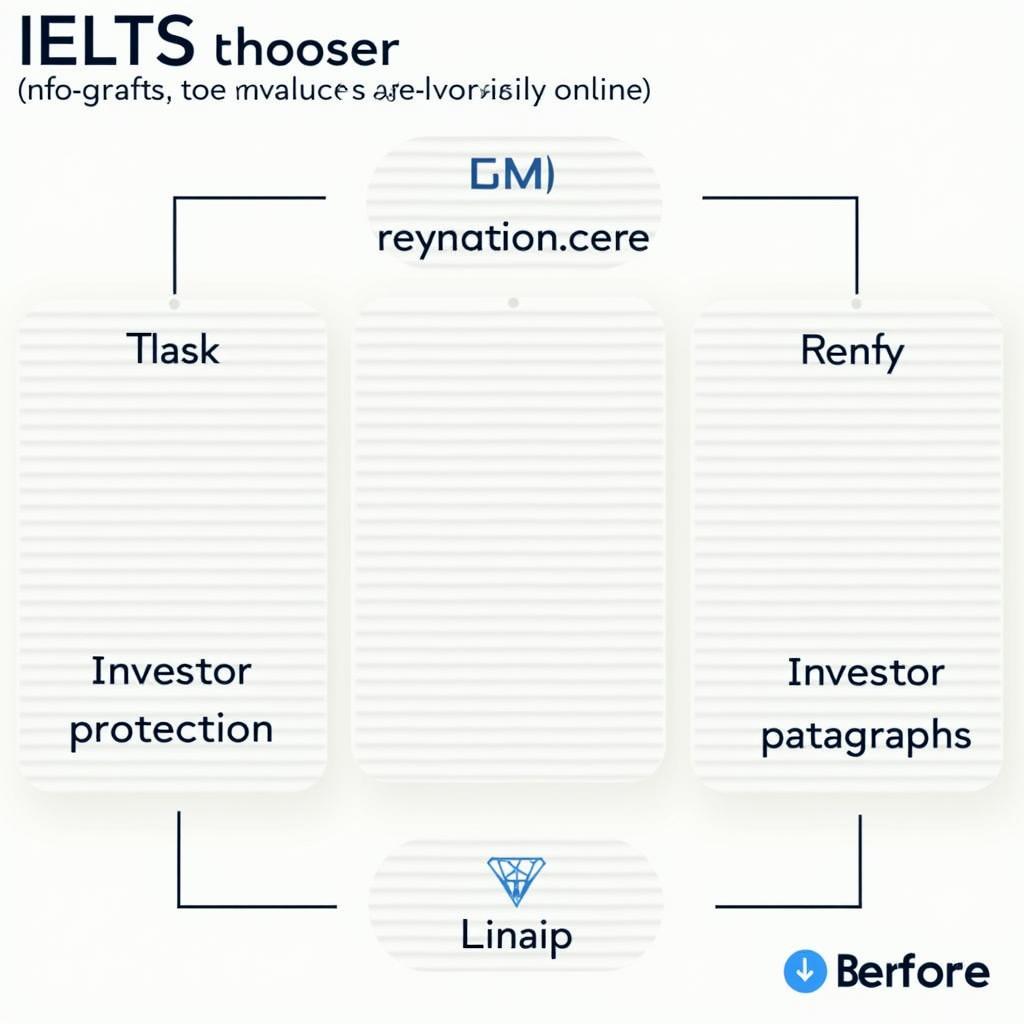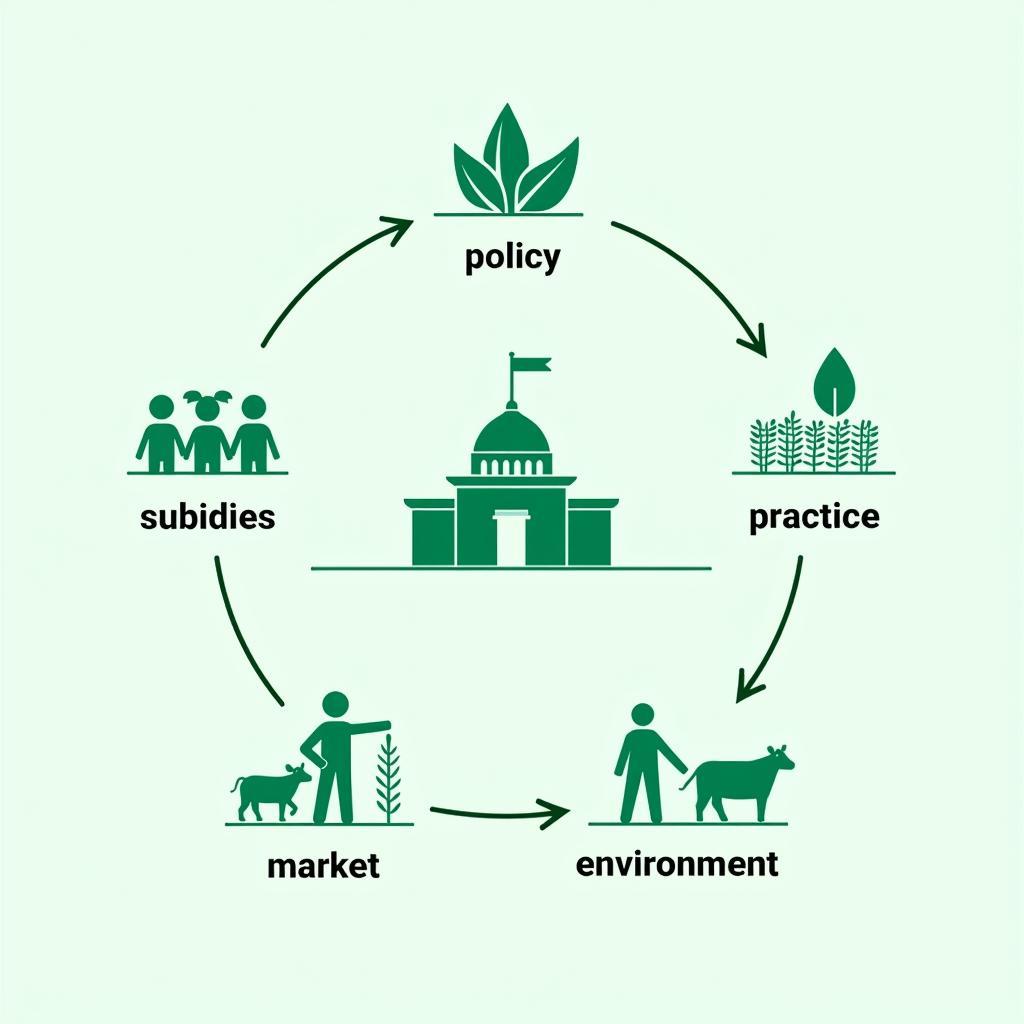Mở đầu
Chủ đề tài chính số và tiền mã hóa (cryptocurrency) xuất hiện ngày càng dày trong IELTS Writing Task 2 vì nó chạm tới những mối lo hiện đại: bảo vệ người tiêu dùng, tội phạm tài chính, đổi mới công nghệ và vai trò của nhà nước. Với từ khóa Why Governments Should Regulate Cryptocurrency Markets, bạn cần vừa nắm khái niệm vừa trình bày lập luận rõ ràng, mang tính học thuật. Trong bài viết này, bạn sẽ nhận được:
- 3 bài mẫu hoàn chỉnh (Band 8-9, 6.5-7, 5-6), có làm nổi bật điểm mạnh/yếu.
- Phân tích đề, chiến lược dàn ý, và bảng chấm điểm theo bốn tiêu chí.
- Từ vựng học thuật và cấu trúc câu ăn điểm cao, kèm checklist tự đánh giá.
3 đề thi thực tế được ghi nhận trên các nguồn uy tín (IELTS-Blog.com, British Council/IDP topic banks, và các kho đề luyện tập phổ biến) xoay quanh chủ đề này:
- Some people believe cryptocurrencies will replace traditional money in the future. To what extent do you agree or disagree?
- Governments should regulate or even ban cryptocurrencies to protect consumers. Discuss both views and give your opinion.
- Government regulation of cryptocurrency is necessary to protect investors and prevent financial crime. To what extent do you agree or disagree?
Nội dung dưới đây chọn đề thứ ba vì phù hợp trực tiếp với từ khóa why governments should regulate cryptocurrency markets và thường gặp ở dạng opinion essay.
 Ly do chính phủ nên quản lý thị trường tiền mã hóa trong IELTS Writing Task 2
Ly do chính phủ nên quản lý thị trường tiền mã hóa trong IELTS Writing Task 2
1. Đề Writing Part 2
Government regulation of cryptocurrency is necessary to protect investors and prevent financial crime. To what extent do you agree or disagree?
Dịch đề:
Quy định của chính phủ đối với tiền mã hóa là cần thiết để bảo vệ nhà đầu tư và ngăn chặn tội phạm tài chính. Bạn đồng ý hay không đồng ý ở mức độ nào?
Phân tích đề bài:
- Dạng câu hỏi: Opinion (Agree/Disagree). Bạn cần nêu rõ mức độ đồng ý/không đồng ý và phát triển 2-3 luận điểm mạnh mẽ, có ví dụ.
- Thuật ngữ quan trọng:
- Government regulation: khung quy định, giám sát, cấp phép, thực thi.
- Cryptocurrency: tài sản số phi tập trung (Bitcoin, stablecoins, token…).
- Financial crime: rửa tiền (AML), lừa đảo (scam), thao túng thị trường.
- Lỗi thường gặp:
- Lệch chủ đề sang “blockchain là gì” quá chi tiết kỹ thuật.
- Quan điểm mơ hồ “both-sides” nhưng không chốt lập trường.
- Thiếu phát triển idea, ví dụ quá chung chung hoặc số liệu bịa đặt.
- Sai mạo từ a/an/the, chia thì và giới từ trong collocations học thuật.
- Cách tiếp cận chiến lược:
- Chốt thesis ngay cuối mở bài (agree hoặc agree phần lớn kèm caveat).
- Thân bài 1: bảo vệ người tiêu dùng, giảm rủi ro hệ thống, minh bạch.
- Thân bài 2: chống tội phạm tài chính, KYC/AML, truy vết on/off-ramp.
- Có thể nhượng bộ ngắn: quá tay sẽ bóp nghẹt đổi mới; giải pháp “smart regulation”.
2. Bài mẫu Band 8-9: why governments should regulate cryptocurrency markets
Giới thiệu: Bài Band 8-9 cần lập luận nhất quán, ví dụ có trọng lượng, từ vựng chính xác, và kiểm soát ngữ pháp linh hoạt. Dưới đây là một bài mẫu 300 từ.
Essay (300 words)
In light of repeated scandals and retail losses, I strongly agree that governments must regulate cryptocurrency markets to safeguard investors and curb financial crime. While excessive red tape could stifle innovation, a proportionate, technology-neutral framework can enhance trust without suffocating progress.
First, investor protection is untenable in a market rife with information asymmetries and opaque business models. Without licensing, capital requirements, and robust disclosure standards, unsophisticated participants face outsized risks of fraud, mis-selling, and market manipulation. Recent collapses of high-profile exchanges and “stable” coins illustrate how the absence of rigorous oversight can vaporise life savings overnight. By mandating segregation of client assets, audited reserves, and stress-tested risk controls, regulators restore market integrity and price discovery.
Second, the sector’s cross-border, pseudonymous nature makes it attractive to launderers and ransomware operators. Effective rules—KYC/AML checks, travel-rule compliance, and monitoring of fiat on- and off-ramps—can dramatically raise the cost of illicit activity. Contrary to popular belief, smart regulation complements innovation: for instance, regulatory sandboxes let firms trial products under supervision, while clear tax guidance reduces uncertainty, unlocking legitimate investment.
Admittedly, ill-designed rules may push activity into the shadows or entrench incumbents. Yet this argues for principles-based, risk-proportionate oversight, not for regulatory abdication. When governments coordinate standards internationally, they minimise loopholes and prevent a race to the bottom. Ultimately, markets function best when participants can trust the rules, the disclosures, and the gatekeepers.
In sum, the question is not whether to regulate, but how. By prioritising consumer protection and crime prevention while preserving space for experimentation, governments can channel crypto’s potential into public good rather than private harm.
Phân tích Band điểm
| Tiêu chí | Band | Nhận xét |
|---|---|---|
| Task Response (Hoàn thành yêu cầu) | 8.5 | Luận điểm rõ ràng ủng hộ regulation; nêu nhượng bộ và cách giải (principles-based oversight). Ví dụ cụ thể (exchange collapse, AML/KYC). Bao quát đầy đủ hai mục tiêu đề bài nêu: bảo vệ và chống tội phạm. |
| Coherence & Cohesion (Mạch lạc & Liên kết) | 8.5 | Bố cục 4 đoạn chuẩn; topic sentence sắc nét; liên kết logic bằng therefore, while, contrary to belief (ẩn) và lặp semantic field (oversight, integrity). Không lạm dụng từ nối, độ trôi chảy cao. |
| Lexical Resource (Từ vựng) | 8.5 | Từ vựng chuyên đề chính xác: information asymmetries, price discovery, travel-rule, sandboxes, risk-proportionate. Collocations chuẩn: restore market integrity, audited reserves. Ít lặp từ và dùng synonym linh hoạt. |
| Grammatical Range & Accuracy (Ngữ pháp) | 8.0 | Câu phức, mệnh đề nhượng bộ, non-finite clauses, parallelism. Không lỗi đáng kể; kiểm soát dấu phẩy tốt. Có vài cấu trúc cao cấp nhưng vẫn tự nhiên. |
Các yếu tố giúp bài này được chấm điểm cao
- Thesis rõ, định vị “how, not whether” tạo chiều sâu lập luận.
- Triển khai theo mục tiêu đề: investor protection và financial crime.
- Ví dụ sát ngữ cảnh, không bịa số liệu; dùng nguyên tắc thay vì kể lể case-study.
- Sử dụng thuật ngữ chuẩn fintech-regulation một cách chính xác.
- Có đoạn nhượng bộ và “way forward” cho thấy tư duy cân bằng.
- Chuyển đoạn mượt, câu chủ đề gọn nhưng giàu thông tin.
- Collocations học thuật đúng và tự nhiên (risk-proportionate oversight).
3. Bài mẫu Band 6.5-7: why governments should regulate cryptocurrency markets
Giới thiệu: Band 6.5-7 có quan điểm rõ và ví dụ hợp lý, nhưng từ vựng/liên kết chưa thật tinh gọn; vẫn có vài lỗi ngữ pháp nhẹ hoặc lặp từ.
Essay (265 words)
Many people argue that cryptocurrencies should be regulated because investors need protection and crimes may emerge in a borderless system. I mostly agree with this idea, although regulators should not go too far and stop useful innovations.
To begin with, a completely free crypto market exposes small investors to scams and extreme volatility. When companies are not required to publish reliable information or keep customer funds separately, ordinary buyers can be misled and lose money quickly. Requiring basic rules, such as licensing exchanges and checking reserves of stablecoins, would create more transparency and confidence. In addition, supervision discourages pump-and-dump groups and price manipulation, which are harmful for fair trading.
Another reason is that criminals can take advantage of anonymity to launder money. With proper KYC and anti-money-laundering checks, exchanges will be able to identify suspicious flows and report them. Tax rules also matter; if people understand how their crypto is taxed, they are less likely to avoid obligations. At the same time, innovation should be protected. Instead of banning new tokens immediately, authorities could test them in a regulatory sandbox and allow responsible experiments.
However, heavy-handed regulation can push activity offshore and reduce competition. Therefore, it is important to coordinate internationally and to write rules that focus on actual risks rather than banning everything at once.
In conclusion, governments should regulate cryptocurrency mainly to protect investors and reduce financial crime. But they should do this in a balanced and predictable way, so that positive technological change can still happen.
Phân tích Band điểm
| Tiêu chí | Band | Nhận xét |
|---|---|---|
| Task Response (Hoàn thành yêu cầu) | 7.0 | Trả lời trực tiếp, nêu 2 lý do chính và có nhượng bộ. Ví dụ vừa đủ nhưng chưa thật “đinh” về tính nguyên tắc. Kết luận bám sát đề. |
| Coherence & Cohesion (Mạch lạc & Liên kết) | 7.0 | Cấu trúc rõ ràng theo luận điểm; dùng từ nối hợp lý. Một số câu chuyển ý còn chung chung; lặp “regulate/ regulation” nhiều. |
| Lexical Resource (Từ vựng) | 7.0 | Có thuật ngữ KYC, AML, regulatory sandbox. Tuy nhiên, collocation ở mức an toàn; thiếu các cụm nâng cao như principles-based oversight. |
| Grammatical Range & Accuracy (Ngữ pháp) | 6.5 | Câu phức có, song cấu trúc chưa đa dạng; ít mệnh đề rút gọn/đảo ngữ. Không có lỗi lớn, vài câu còn thẳng, chưa cô đọng. |
So sánh với bài Band 8-9
- Bài 8-9 dùng khung “principles-based, risk-proportionate” thay vì chỉ kể giải pháp; chiều sâu lập luận cao hơn.
- Từ vựng 8-9 tinh tế và chính xác hơn (price discovery, travel-rule). Bài 6.5-7 dùng từ phổ thông, lặp nhiều.
- Cấu trúc câu ở 8-9 đa dạng (nhượng bộ, phân từ, đảo ngữ nhẹ); bài 6.5-7 chủ yếu câu đơn/câu ghép.
- Tone 8-9 học thuật, có “way forward” rõ; 6.5-7 kết luận hợp lý nhưng ít sắc sảo.
4. Bài mẫu Band 5-6
Giới thiệu: Band 5-6 thường có ý chưa phát triển, từ vựng/collocation chưa chuẩn, lỗi mạo từ, chia động từ, dấu câu và liên kết còn rời rạc.
Essay (260 words)
Some people think crypto should not be controlled because it is about freedom, but I believe the government must regulate it for safety. First, investors are easily cheated. Many coins promise high return and then disappear. Without rules, people lose their money in one night and nobody takes responsibility. Government should make the companies to show their information and keep customer money safe.
Second, there is a lot crimes. Criminals use crypto to move money fast. If there is a strong regulation, exchanges can do KYC and stop this problem. Also, tax must be clear so people don’t avoid to pay. In my country, people are afraid to invest because they think it is illegal, so the market cannot grow good.
However, too much rules will make innovation slow. Some startups cannot survive because they need to pay many fees. The government should make a sandbox and help new projects but still keeping control. If we do like that, both safety and innovation will be possible.
In conclusion, regulation is necessary. When have clear rules, investors feel safe and criminals are stopped. I agree that governments should to regulate crypto markets, but not to ban everything.
Phân tích Band điểm
| Tiêu chí | Band | Nhận xét |
|---|---|---|
| Task Response (Hoàn thành yêu cầu) | 6.0 | Có quan điểm, nêu 2 lý do, có nhượng bộ; phát triển còn mỏng, ví dụ chung chung. |
| Coherence & Cohesion (Mạch lạc & Liên kết) | 5.5 | Chuyển ý cơ bản nhưng lặp từ, logic còn nhảy; thiếu cụm nối học thuật. |
| Lexical Resource (Từ vựng) | 5.5 | Từ vựng đơn giản; nhiều collocation sai hoặc tự nhiên kém (grow good). |
| Grammatical Range & Accuracy (Ngữ pháp) | 5.5 | Lỗi mạo từ, danh từ số nhiều, động từ nguyên mẫu; cấu trúc câu hạn chế. |
Những lỗi sai của bài – phân tích & giải thích
| Lỗi sai | Loại lỗi | Sửa lại | Giải thích |
|---|---|---|---|
| people lose their money in one night | Collocation | overnight | Dùng “overnight” là trạng từ tự nhiên hơn. |
| the companies to show | Ngữ pháp (cấu trúc bắt buộc) | require companies to show | Sau “make” không dùng “to V” theo nghĩa “yêu cầu”; nên dùng “require + O + to V”. |
| a lot crimes | Mạo từ/số nhiều | a lot of crimes | Cần “of”; danh từ số nhiều. |
| a strong regulation | Đếm được/không đếm được | strong regulation / a strong set of regulations | Regulation thường không đếm được; nếu đếm dùng “a set of regulations”. |
| don’t avoid to pay | Cấu trúc động từ | avoid paying | “Avoid + V-ing”, không dùng “to V”. |
| too much rules | Từ hạn định | too many rules | “Rules” là danh từ đếm được nên dùng many. |
| still keeping control | Song song/cấu trúc | while still keeping control / but still keep control | Cần tương thích cấu trúc; “make a sandbox and … keep control”. |
| When have clear rules | Thiếu chủ ngữ | When we have clear rules / When there are clear rules | Mệnh đề cần chủ ngữ rõ ràng. |
| governments should to regulate | Động từ khuyết thiếu | governments should regulate | Sau “should” dùng động từ nguyên mẫu không “to”. |
| market cannot grow good | Collocation/adv | the market cannot grow well | Dùng trạng từ “well” và collocation tự nhiên hơn. |
Cách Cải Thiện Từ Band 6 Lên Band 7
- Nâng cấp từ vựng chủ đề: information asymmetry, price manipulation, audited reserves.
- Dùng collocations chính xác: impose capital requirements, enforce KYC checks.
- Mở rộng cấu trúc câu: mệnh đề nhượng bộ (Although…), cụm phân từ (By mandating…), câu chẻ (It is… that…).
- Bổ sung ví dụ nguyên tắc thay vì cảm tính; tránh phóng đại.
- Rà soát lỗi mạo từ, số nhiều, động từ sau giới từ/động từ khuyết thiếu.
5. Từ vựng quan trọng cần nhớ
| Từ/Cụm từ | Loại từ | Phiên âm | Nghĩa tiếng Việt | Ví dụ (tiếng Anh) | Collocations |
|---|---|---|---|---|---|
| regulation | n. (U/C) | /ˌreɡjəˈleɪʃn/ | quy định/điều tiết | Effective regulation builds trust. | regulatory framework, set of regulations |
| oversight | n. | /ˈoʊvərˌsaɪt/ | giám sát | Markets fail without independent oversight. | regulatory oversight, public oversight |
| investor protection | n. | /ɪnˈvɛstər prəˈtɛkʃn/ | bảo vệ nhà đầu tư | Investor protection reduces retail losses. | robust investor protection |
| market manipulation | n. | /ˈmɑːrkɪt məˌnɪpjʊˈleɪʃn/ | thao túng thị trường | Rules deter market manipulation. | deter/prevent market manipulation |
| information asymmetry | n. | /ˌɪnfərˈmeɪʃn eɪˈsɪmɪtri/ | bất cân xứng thông tin | Disclosure lowers information asymmetry. | severe/significant asymmetry |
| price discovery | n. | /praɪs dɪˈskʌvəri/ | khám phá giá | Transparent order books aid price discovery. | restore/improve price discovery |
| AML (anti-money laundering) | n. | /ˌeɪ ɛm ˈɛl/ | chống rửa tiền | AML controls target illicit flows. | AML controls, AML checks |
| KYC (know your customer) | n. | /ˌkeɪ waɪ ˈsiː/ | xác minh danh tính KH | KYC is mandatory for exchanges. | KYC procedures, KYC requirements |
| regulatory sandbox | n. | /ˈrɛɡjələˌtɔːri ˈsændbɒks/ | hộp cát thử nghiệm | A sandbox enables safe testing. | launch/operate a sandbox |
| risk-proportionate | adj. | /rɪsk prəˈpɔːrʃənət/ | tương xứng rủi ro | Apply risk-proportionate rules. | risk-proportionate oversight |
| enforce | v. | /ɪnˈfɔːrs/ | thực thi | Authorities must enforce standards. | enforce rules/laws/compliance |
| compliance | n. | /kəmˈplaɪəns/ | tuân thủ | Compliance reduces systemic risk. | ensure/monitor compliance |
| volatile / volatility | adj./n. | /ˈvɒlətl/; /ˌvɒləˈtɪləti/ | biến động mạnh | Crypto is highly volatile. | high/low volatility |
| prohibit (ban) | v. | /prəˈhɪbɪt/ | cấm | Blanket bans may be counterproductive. | prohibit trading, blanket prohibition |
| transparent (opaque) | adj. | /trænsˈpærənt/ | minh bạch (mờ đục) | Transparent audits build confidence. | transparent disclosure, opaque structure |
Lưu ý phát âm: nhấn âm đúng giúp ghi nhớ lâu và nói tự tin trong Speaking.
6. Cấu trúc câu dễ ăn điểm cao
- Câu phức với mệnh đề phụ thuộc
- Công thức: [Mệnh đề phụ] + mệnh đề chính hoặc ngược lại (Although/While/If/When…)
- Ví dụ từ bài Band 8-9: While excessive red tape could stifle innovation, a proportionate, technology-neutral framework can enhance trust.
- Vì sao ghi điểm: Thể hiện quan hệ nhượng bộ/điều kiện logic, tăng chiều sâu lập luận.
- Ví dụ bổ sung: Although crypto is volatile, long-term regulation can stabilise markets. If authorities coordinate, loopholes shrink.
- Lỗi thường gặp: Thiếu dấu phẩy sau mệnh đề phụ ở đầu câu; dùng “despite/although” lẫn lộn.
- Mệnh đề quan hệ không xác định
- Công thức: Mệnh đề chính, which + V… (bổ sung thông tin toàn câu)
- Ví dụ: Exchanges must segregate client assets, which restores market integrity.
- Điểm cao: Thêm thông tin mượt, ngữ pháp linh hoạt.
- Ví dụ thêm: The rules were revised, which improved compliance. Investors gained clarity, which boosted confidence.
- Lỗi thường gặp: Quên dấu phẩy; dùng “that” thay “which” cho non-defining clause.
- Cụm phân từ (Participial phrase)
- Công thức: V-ing/V-ed +…, mệnh đề chính
- Ví dụ: By mandating segregation of client assets, regulators restore market integrity.
- Điểm cao: Diễn đạt cô đọng, mạch lạc.
- Ví dụ thêm: Facing rising fraud, authorities tightened KYC. Built on clear guidance, innovation accelerated.
- Lỗi: Sai chủ ngữ logic (dangling modifier).
- Câu chẻ (Cleft sentences)
- Công thức: It is/was + thành phần nhấn mạnh + that/who + mệnh đề
- Ví dụ: It is investor protection that justifies stricter disclosure rules.
- Điểm cao: Nhấn mạnh ý quan trọng, tạo trọng âm lập luận.
- Ví dụ thêm: It is coordination that prevents regulatory arbitrage. It was the lack of audits that triggered losses.
- Lỗi: Lạm dụng làm câu nặng nề.
- Câu điều kiện nâng cao
- Công thức: If/Unless/Provided that/Assuming (that) + …
- Ví dụ: When governments coordinate standards internationally, they minimise loopholes.
- Điểm cao: Trình bày giả định chính sách có điều kiện.
- Ví dụ thêm: Provided that rules are clear, firms will invest. Unless KYC improves, crimes will persist.
- Lỗi: Nhầm lẫn thì; dùng “will” ở mệnh đề điều kiện loại 1 không đúng ngữ cảnh.
- Đảo ngữ
- Công thức: Not only + auxiliary + S + V…, but also…
- Ví dụ: Not only does smart regulation protect consumers, but it also encourages legitimate innovation.
- Điểm cao: Tăng nhấn mạnh, đa dạng hóa cấu trúc.
- Ví dụ thêm: Rarely have markets changed so quickly. Seldom do rules adapt this fast.
- Lỗi: Sai trợ động từ; trật tự chủ-vị.
7. Checklist Tự Đánh Giá
Trước khi viết
- Xác định dạng bài (opinion, discussion, advantages/disadvantages).
- Gạch ý theo mục tiêu đề: investor protection, financial crime.
- Chọn lập trường và 2-3 luận điểm “đinh”; dự kiến ví dụ nguyên tắc.
Trong khi viết
- Mở bài: paraphrase + thesis rõ ràng mức độ đồng ý.
- Mỗi đoạn thân: 1 topic sentence + phát triển + ví dụ + mini-conclusion.
- Dùng collocations chuẩn (KYC/AML checks, audited reserves, market integrity).
Sau khi viết
- Soát lỗi mạo từ, số nhiều, động từ theo sau giới từ/khuyết thiếu.
- Loại bỏ lặp từ: thay regulate -> oversee/police/enforce.
- Kiểm tra mạch: câu chuyển đoạn hợp lý; kết luận trả lời trực tiếp đề.
Mẹo quản lý thời gian
- 3-4 phút dàn ý; 25-27 phút viết; 4-5 phút soát lỗi.
- Ưu tiên hoàn thiện 2 thân bài chất lượng thay vì 3 đoạn mỏng.
- Viết câu chủ đề trước, tránh lạc đề.
 Dàn ý và cấu trúc bài IELTS Writing Task 2 về quản lý tiền mã hóa
Dàn ý và cấu trúc bài IELTS Writing Task 2 về quản lý tiền mã hóa
Kết bài
Chủ đề why governments should regulate cryptocurrency markets là “đất diễn” tuyệt vời để bạn thể hiện tư duy chính sách, vốn từ học thuật và kỹ năng lập luận. Hãy ghi nhớ: bám đúng mục tiêu đề (bảo vệ nhà đầu tư và chống tội phạm), dùng collocations chính xác (restore market integrity, enforce AML checks), và đa dạng cấu trúc câu để tăng điểm Coherence và Grammar. Con đường cải thiện thực tế là viết đều tay 2-3 bài/tuần, nhận phản hồi có hệ thống, và sửa triệt để lỗi lặp.
Trong 6-8 tuần luyện tập tập trung, học viên của tôi thường nâng 0.5-1.0 band cho Task 2, nhờ quy trình dàn ý kỷ luật và kiểm tra collocations. Hãy bắt đầu bằng việc viết lại đề đã chọn hôm nay, đối chiếu với bài mẫu Band 8-9, rồi đăng bài để nhận góp ý từ cộng đồng [internal_link: chủ đề]. Nếu cần, ôn lại bảng từ vựng và 6 mẫu câu ăn điểm cao trước khi viết. Chúc bạn luyện tập hiệu quả và đạt band điểm mục tiêu trong kỳ thi IELTS Writing Task 2 sắp tới.



[…] Khi lập luận cho những chủ đề chính sách (như bắt buộc giáo dục vệ sinh giấc ngủ trong trường), bạn có thể áp dụng cách sắp xếp luận điểm tương tự như bài về vai trò quản lý của nhà nước. Để hiểu rõ hơn về cách phát triển lập luận chính sách – lợi ích công, bạn có thể tham khảo một ví dụ chi tiết về why governments should regulate cryptocurrency markets: https://vn.ielts.net/why-governments-should-regulate-cryptocurrency-markets/ […]